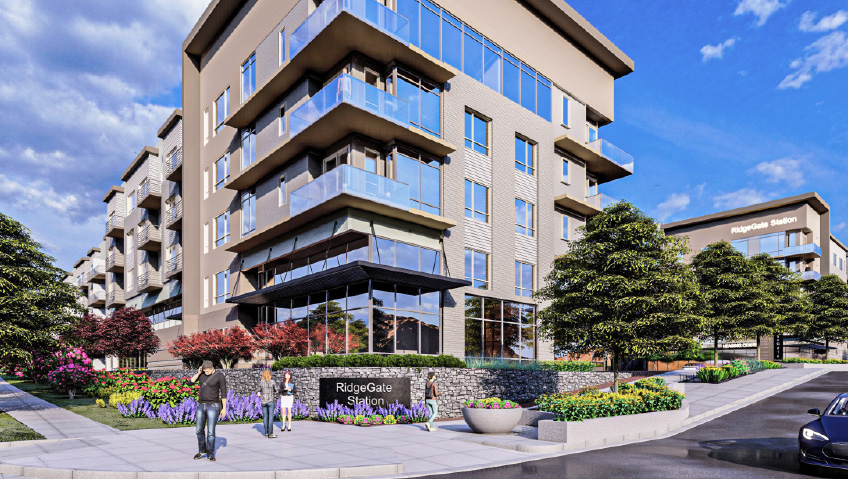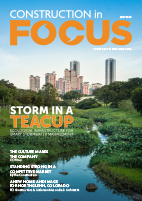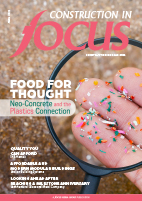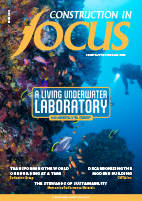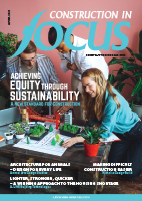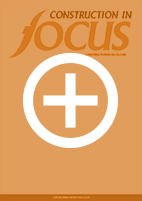EVstudio offers integrated architectural, engineering, design, and planning services for residential and commercial construction projects. While headquartered in Denver, Colorado, the progressive, rapidly growing, full-service firm also has branches in Texas and Idaho and big plans to go national.
As the name suggests, EVstudio is organized into inclusive ‘studios.’ While the company does maintain specialized engineering departments to serve clients who require discipline-specific services, team members are also interspersed in studios based around sectors served by the company. These sectors include education, office, industrial, residential, worship, health care, multi-family, parks and recreation, off-site construction, and retail.
A studio might have “architects, structural engineers, civil engineers, MEP [mechanical, electrical, plumbing] engineers. So these teams work exclusively together on all the projects within that studio,” explains Founder and Principal Dean Dalvit.
The company’s engineering services range from civil, structural, electrical, mechanical, and plumbing to energy modeling, underground stormwater management, and retaining wall design. The company also provides planning services, primarily to developers.
“Planning comes in all flavors. To some people, planning is writing master plans for communities. For other people, planning is taking a site and creating a vision for a large, multi-use mixed development. We’re more in the latter category,” says Dalvit. EVstudio excels at redevelopment projects that entail “taking vacant land or previously developed land,” and coming up with a vision to transform it into something new, he explains.
Most of the company’s work is performed in the western United States. Among its more notable accomplishments is RidgeGate Station, a development in Lone Tree, Colorado. This was “our largest project to date,” and involves “over 500 units of multi-family,” says Dalvit, who adds that, “there is also a mixed-use component.” The project comprised over 715,000 gross square feet of space featuring rental units, commercial lease space, and aboveground parking garages. The project was commissioned by Regency Residential Partners, a repeat client.
EVstudio was also tapped for an apartment development in Durango, Colorado, called the Gauge Apartments. This assignment centered on “90 units of workforce housing in three buildings that are right in town. It turned out to be a fantastic project,” Dalvit shares.
The Yellowtail Residences luxury condo development in Big Sky, Montana was another project close to the company’s heart. This development featured a dozen units and was unique in that much of the housing was manufactured off-site, as was also the case for the Gauge Apartments.
In off-site or modular construction, building segments are manufactured in a factory, transported to the building site, and assembled there. EVstudio is a strong proponent of the modular movement, and Dalvit frequently speaks about this topic at industry events. Off-site/modular construction can be completed faster than traditional construction and produces less waste. It is also safer for workers, as much of the work is done in controlled factory settings, rather than building sites, which can be chaotic. In response, the company has launched a much in-demand off-site construction studio dubbed the EVolution Studio.
“Off-site construction has been around for a long time but it seems to have hit some sort of tipping point in the last five years. We’re seeing a lot more interest and activity and more market share across the built environment being done with larger components of the building manufactured off-site,” says Dalvit. “What we’re most excited about right now is the pioneering work we’re doing in the off-site construction space.”
He predicts that the Big Sky condominium development will “probably be the poster child with how far you can push design in off-site construction. A lot of people think of modular as kind of low-end; this will prove to the world that it’s not limited to commodity-style housing; it can be a solution for high-end luxury housing as well.”
Dalvit founded the firm that would become EVstudio in 2005. Licensed as both an architect and a professional engineer, he knew from the start what he wanted the company to look like, even in the earliest days when he was sole proprietor.
“I am a multi-disciplinary designer,” he explains. “I can’t look at buildings and not see every discipline jump out at me… The whole idea from day one was a multi-disciplinary approach.”
Originally called Eagle View Architecture, the company expanded, quickly taking on a partner and new staff and changing its name to its current moniker. A Texas office, now located in Austin, was opened in 2009. In 2021, the company acquired an Idaho firm called neUdesign Architecture and incorporated it into the fold. At present, EVstudio has over 100 employees across all three locations.
The company’s success has been predicated on several factors. Its studio structure and integrated service offering are key, but the team has also benefited from having a set of core values and a willingness to embrace new technology and concepts.
Back when the firm was just a small group in Denver, staff members sat down to analyze what made the company tick. Out of these sessions came a set of values intended to guide the business going forward. These principles were distilled into five core values, consisting of joy, responsibility, EVolution (or change), excellence, and leadership. More than just aspirational goals, these values set the tempo for a business that prides itself on being flexible, resilient, and loyal to staff.
“During the great recession of 2008 to 2012, we didn’t lay anybody off. We had colleagues whose businesses were completely falling apart. We sustained through that largely because our fundamental operating philosophy is to build a resilient company that provides opportunities to our team, provides value to our clients, and provides sustainable longevity for all of us,” notes Dalvit. “We’ve been a very technology-forward company. Part of that is due to the fact that we’ve always been in multiple workplaces,” he says.
Early communication between offices in different locales was facilitated via Skype, the video-conferencing platform. Since then, the company has embraced Autodesk Revit building information modeling (BIM) software and 3D design programs, as well as virtual and augmented reality. The company often creates videos that provide a digital “flythrough of a fully-rendered project site,” Dalvit shares.
This past year, the company “migrated to a fully cloud-based platform for all our accounting and file management systems,” he says. “We’re interested in the next technology that isn’t here yet and how it will influence our work. We’re looking at things like artificial intelligence as it applies to architecture and engineering. Our underlying philosophy is that we are willing to spend a few thousand dollars on technology if it gives us tens of thousands or hundreds of thousands of dollars of value over time.”
EVstudio’s upwards trajectory was challenged, though not halted, by the advent of COVID. “All of our hospitality work post-COVID basically just vaporized. We weren’t doing anything in hospitality, restaurant, or even office in 2020 to 2021. We’re seeing that stuff come back [now],” says Dalvit. “The nice thing about the way the company is built is we’re able to pivot fairly quickly to markets that are strong. That’s part of our resiliency plan for the company and to maintain job security for our staff.”
While hospitality work disappeared, the company’s housing work took off during the COVID years.
In terms of the future, Dalvit is eager to fulfill a long-term growth objective called ‘EVision.’ “Our overall vision or mission is to become a nationally recognized design firm,” he says. “By organizing into studios, that makes it really easy to acquire or adopt new firms or create new work groups in other geographic locations. They just tack on to our studio models, which is organizationally very efficient… The work we’ve done in the last year has largely been creating an infrastructure that enables us to scale into the next generation.”
Apart from the purchase of neUdesign, EVstudio has largely grown organically, “but our new challenge is how to scale through a more systematic and strategic acquisition approach,” Dalvit shares. “Acquisitions sound great on paper, but it takes a tremendous amount of work to truly integrate two teams that have not worked together before. It takes a lot of capital as well.”
Regarding the latter, the company is looking at opportunities to provide the necessary resources to fund its further growth. Regardless of how expansion plays out, Dalvit is tremendously enthusiastic about the future.
“In five years, if everything we have planned is executed as planned, I expect the company to have between 200 and 250 staff, with at least two more office locations regionally, and doing business in the entire western half of the country,” states the EVstudio founder.

